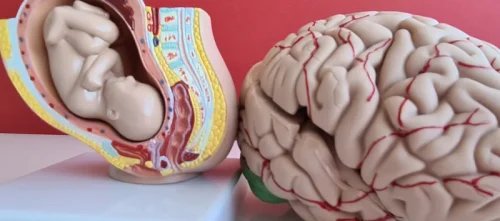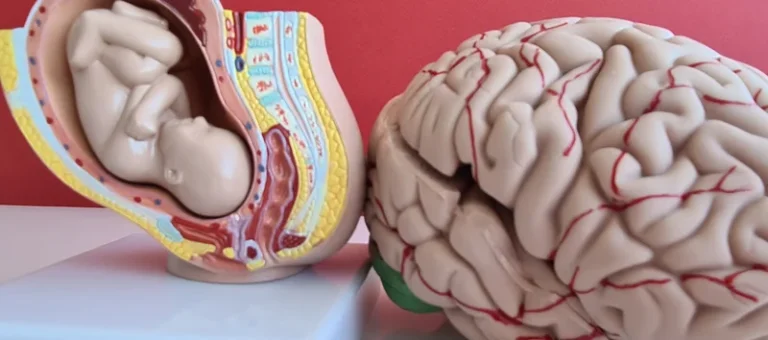
Drinking a beer before bed is a common practice, with nearly two-thirds of Americans consuming alcohol before bedtime. While alcohol can induce sleepiness and help you fall asleep, it can https://ecosoberhouse.com/ negatively impact your sleep quality and lead to a restless night. It is recommended that you avoid drinking alcohol within three to four hours of bedtime to minimize sleep disruptions. Alcohol is a central nervous system depressant and slows down brain activity, creating a sedative effect. As your body metabolizes alcohol, the normal sleep cycle can be disrupted, leading to frequent awakenings and reduced REM sleep. Additionally, alcohol can worsen existing sleep disorders and interfere with circadian rhythms, affecting your sleep-wake cycle.

Adult Health
While alcohol intake and depression seem to increase the risk of one another simultaneously, alcohol abuse may be the stronger causal factor (20, 21, 22). In heavy drinkers, binge drinking may cause your liver to become inflamed. In worst-case scenarios, liver cells die and get replaced with scar tissue, leading to a serious condition called cirrhosis (3, 6, 7).
- For people who drink several times a week and do not have alcohol dependency, even slightly reducing intake can have significant health benefits, Keyes added.
- It can also lead to nutritional imbalances, higher cortisol levels, and lower testosterone levels, potentially impacting weight and worsening pre-existing conditions.
- Many people facing anxiety and depression drink intentionally to reduce stress and improve mood.
- Alcohol reduces your ability to think clearly and often this can lead to bad decision making.
Risks and Negative Effects of Alcohol
If you do decide to drink beer, it is recommended to alternate between water and beer to keep rehydration going. While drinking beer after cardio or any exercise is not recommended, it may not be harmful to have an occasional beer after a workout, provided what is alcoholism it is in moderation. However, it is important to understand how alcohol affects your body and interacts with your exercise routine. It is worth noting that non-alcoholic beer has been found to have potential benefits for recovery after cardio. A 2012 study showed that non-alcoholic beer has anti-inflammatory properties, which can be beneficial for reducing post-race inflammation in marathon runners.
- And when alcohol is consumed as part of a Mediterranean diet, it seems to carry far less cancer risk than most other ways of consuming alcohol.
- In 1920, following passage of the Constitution’s 18th Amendment, the federal government prohibited the making, shipping and sale of alcoholic beverages.
- “Over time, this repeated damage can result in cirrhosis, where the liver becomes so scarred that it loses functionality,” she explains.
- An update to federal dietary guidelines next year could include new recommendations about how much alcohol people should drink.
Dietitian tip of the day: I always eat this 1 food combo to reduce fatigue after a workout
Registered dietitian Amy Brownstein, benefits of alcohol MS, RDN, notes that red wine in particular is loaded with polyphenols—antioxidants that may help protect the heart, lower “bad” LDL cholesterol, and reduce inflammation. For example, studies show that moderate red wine consumption can decrease LDL cholesterol, which is linked to a lower risk of artery-clogging and heart disease. “Polyphenols in red wine help lower cholesterol by limiting how much the liver absorbs and preventing the breakdown of LDL cholesterol,” Brownstein explains. But alcohol, consumed in moderate amounts (no more than 14 drinks for men or 7 drinks for women in a week), can have some health benefits. So let’s raise a glass to the good, and put down the glass for the not-so-good, effects of alcohol. To minimize the potential negative effects of drinking beer after cardio, it is recommended to choose a beer with a lower alcohol content and to drink plenty of water alongside it.
- That means you are free to republish our content both online and in print, and we encourage you to do so via the “republish this article” button.
- These effects are only temporary, but chronic alcohol abuse may cause permanent changes in your brain, often leading to impaired brain function (9, 10, 11).
- 19 Compared to those who did not change their alcohol intake, those who increased their intake by 2 or more drinks a day gained a little more than a half-pound.
- It also slows down the natural recovery process by elevating cortisol levels, decreasing testosterone levels, and inhibiting protein synthesis.
- But the current evidence suggests that for those who choose to drink, the benefits from moderate meal-time drinking (wine with a Mediterranean-style meal, preferably) outweigh the risks.

The cells lining your mouth and throat are especially vulnerable to the harmful effects of alcohol. Characterized by abnormally high blood sugar, type 2 diabetes is caused by a reduced uptake of glucose, or blood sugar, by your cells — a phenomenon known as insulin resistance. The relationship between alcohol and heart disease is complex and depends on several factors. Beer has a similar number of calories as sugary soft drinks, ounce for ounce, whereas red wine has twice as much (28, 29, 30).

Beer After Workout: Good Or Bad?

Some people become addicted to the effects of alcohol, a condition known as alcohol dependence or alcoholism. There are several possible reasons for the beneficial effects of drinking moderately. Conversely, drinking moderately has been linked to a reduced risk of dementia — especially in older adults (16, 17, 18). These effects are only temporary, but chronic alcohol abuse may cause permanent changes in your brain, often leading to impaired brain function (9, 10, 11). Liver diseases caused by alcohol consumption are collectively known as alcoholic liver diseases.
A timeline of Joe Biden’s health throughout the years, from brain surgery to prostate cancer
Drinking beer after a workout can negatively impact your sleep, and the more you drink, the worse the effects. Beer can cause dehydration, which, when combined with fluid loss from sweating during exercise, can further disrupt sleep. Alcohol also affects the way the body converts food and drink into energy, impacting overall recovery.
Instead, much alcohol research is observational, meaning it follows large groups of drinkers and abstainers over time. But observational studies cannot prove cause-and-effect because moderate drinkers differ in many ways from non-drinkers and heavy drinkers—in diet, exercise, and smoking habits, for instance. Observational studies can still yield useful information, but they also require researchers to gather data about when and how the alcohol is consumed, since alcohol’s effect on health depends heavily on drinking patterns. Up to 65% of American adults drink alcohol, but messaging around alcohol and its potential impact on health has been confusing in recent years.